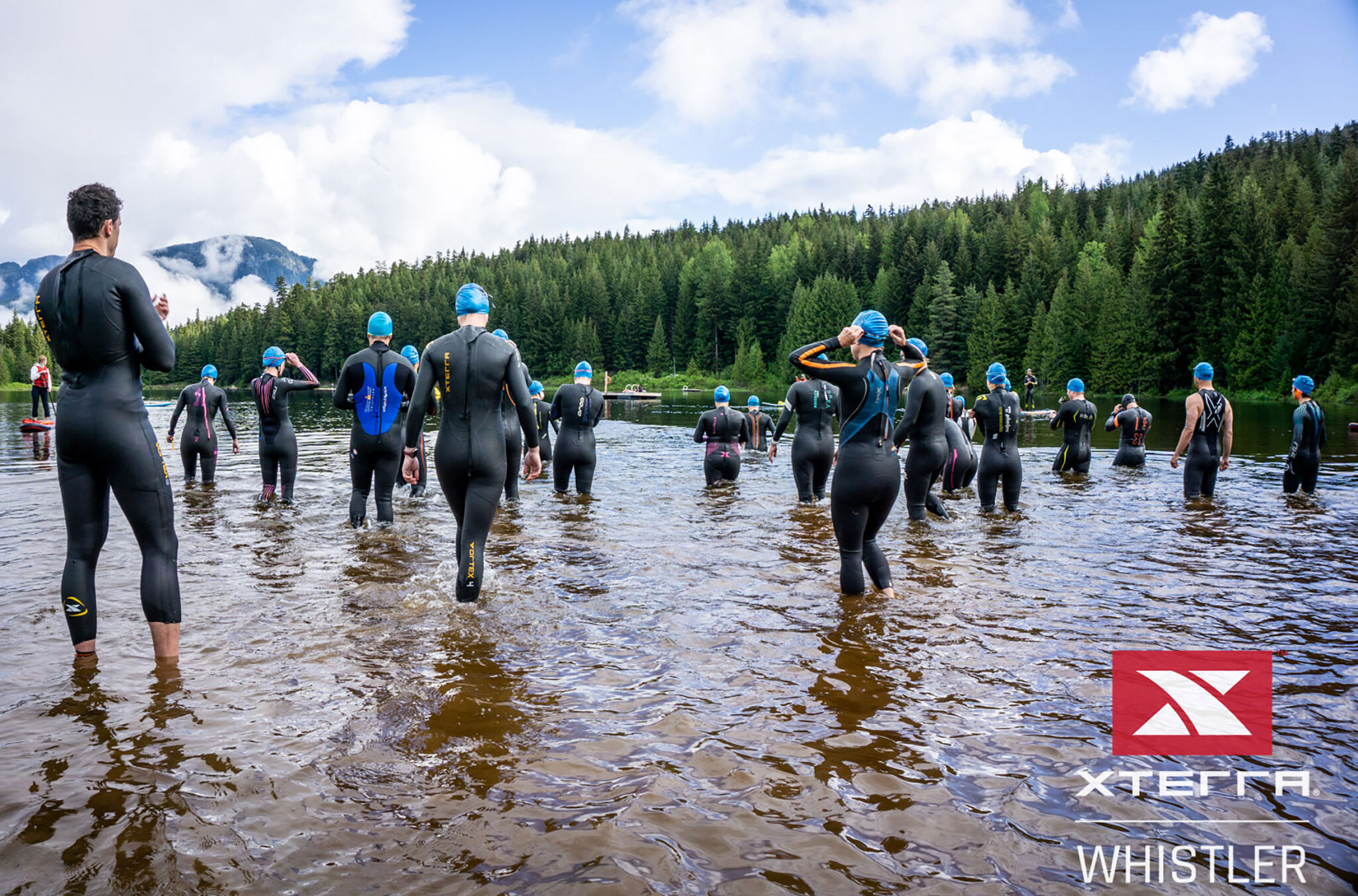When I met with Kristian Manietta, event founder and producer for Whistler X Tri, he was training for a 200-mile race. I was worried about my next 5K.
“It’s not about comparison,” said Manietta. Our interview had turned into more of a coaching session by this point. “I tell all the people I work with that they’re capable of doing way more than they ever thought.”
I mull this over. I’ve just signed up for my first triathlon, the sprint course of the Whistler X Tri in September, and I’m wondering where I can get this mantra tattooed.
“We’re in a comfort crisis,” he commented, while I drank my chai latte (in comfort). “We can control so many aspects of our life that we’ve forgotten that it’s adversity that keeps things interesting, it keeps us alive. We all need to push into discomfort now and again because that’s where we find ourselves – when we’re put in challenging situations.”
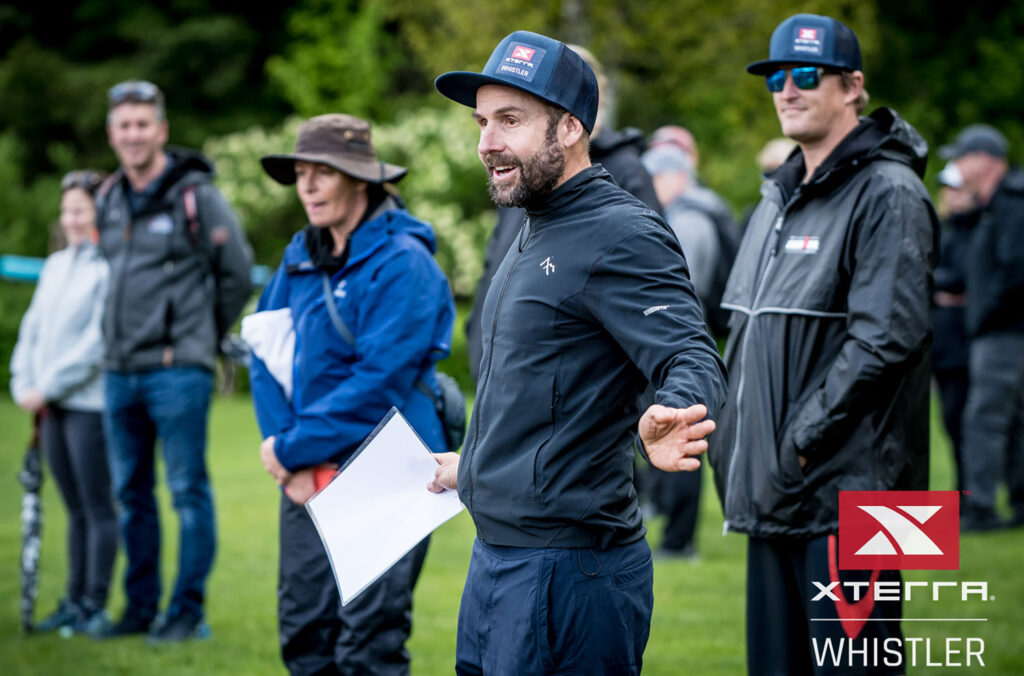
Funnily enough, it’s my sense of control that somewhat led to this conversation with this Australia-born, pro snowboarder turned endurance coach. With a 750-metre swim, 12-kilometre mountain bike and five-kilometre run ahead of me, I was planning on grilling Manietta for his top race tips. However, his comments about the mental game of it all might serve me even more.
“I’ve worked with pro athletes, one of them being my wife, and quite often, like all the athletes I coach, they forget the successes. It’s the challenges that stick in your mind. They might not have been fun at the time, but they’re what you remember, what you talk about with family and friends. That’s what I mean when I say Event is Life.”
I have an inkling about what he means. As a mother of three young kids, it’s been a while since I raced. Or I should say, had the time to dedicate to myself in order to race. But for Manietta, training is for life, if not a way of life.
“If you’re in a constant state of training, you’re be able to act on opportunities when they come your way,” he says. “Doing scary things should be on everyone’s to-do list. You can develop different skills at any point in your life, so look for challenges and see where they take you.”
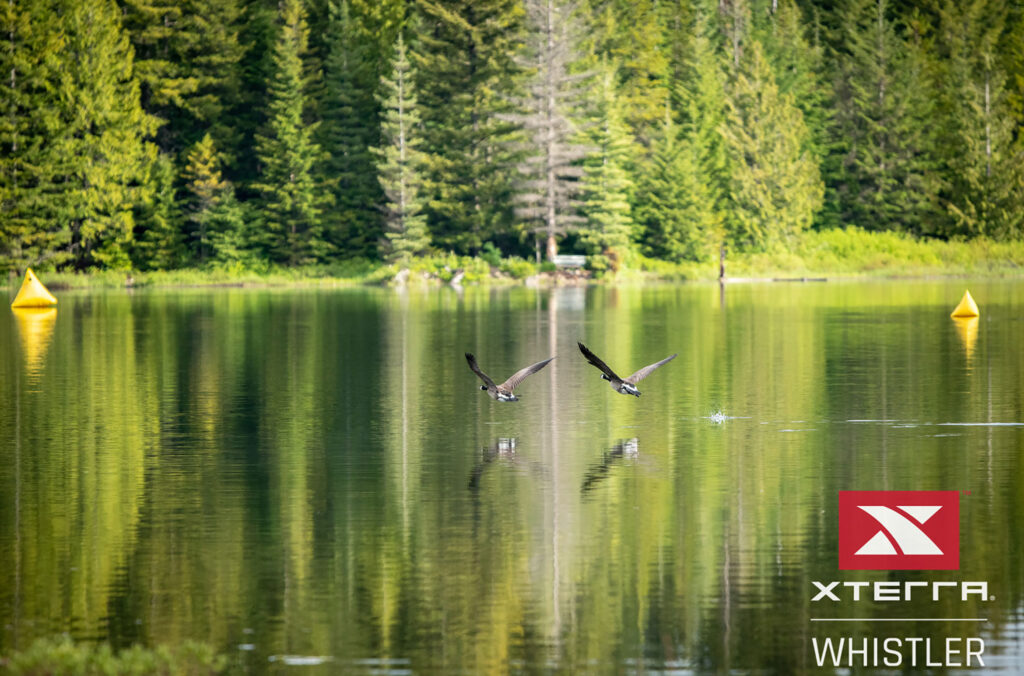
Where it’s taking me in September is Lost Lake Park. The Whistler X Tri race is centred around this idyllic, old-growth-forest spot just metres away from Whistler Village. There’s a sprint course and Champion course, along with relay options and a kids’ race. The race is a qualifier for the World Championships (each age group has a certain amount of spots), which are being held in the Dolomites in Italy later this year.
“Whistler is a stand-out place to host races because there’s so much to do for everyone.” says Manietta. “Whether you’re travelling with your other half who might not race, or your family, it’s a location that you can build a vacation around as well as your racing.”
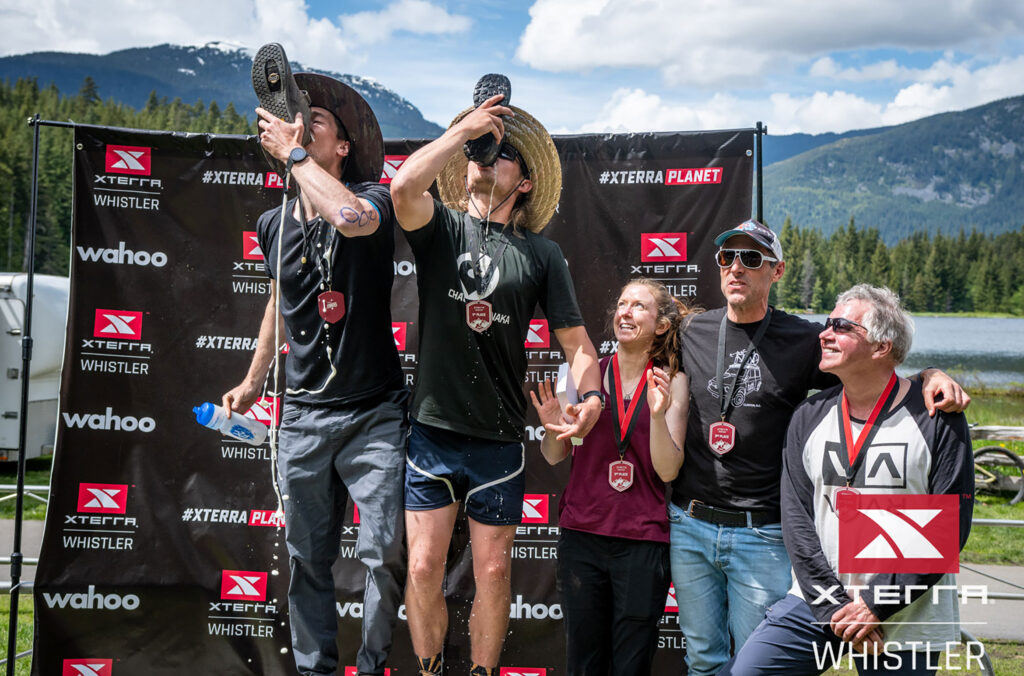
At the time of the Whistler X Tri this year, the Whistler Village Beer Festival is on, along with sightseeing, hiking and biking on Whistler Blackcomb, and a vibrant arts and culture scene with new exhibits at the Squamish Lil’wat Cultural Centre and Audain Art Museum. Not to mention the breadth of late summer activities like ziplining, whitewater rafting, ATV and RZR tours, and bear viewing – just to name a few.
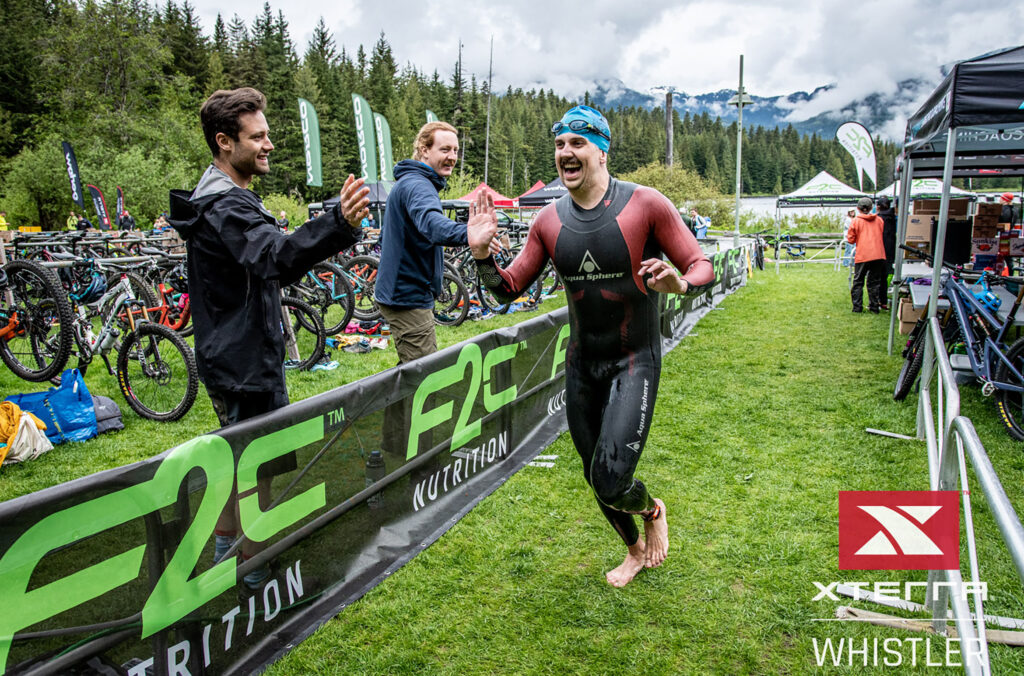
Prior to this role, Manietta was the President of the Whistler Triathlon Club; he helped found Whistler’s running club, We Run Whistler, and also organizes the infamous Comfortably Numb race, which sold out this year.
“It’s about fun,” he explains. “When we started thinking about a triathlon in Whistler we realized that more people would come if we made it a mountain biking course. So that’s what we did! We try to look at barriers to entry and try to remove them. The sprint course is a doable challenge, we want more people to come out and spend a day adventuring in the forest.”
Doable caught my eye. I’ve always wanted to challenge myself to a triathlon, but I’m not a fan of road biking. The mountain biking option, along with the sprint-course distances (and a couple of beers one evening) made me click the register button. I have all summer to train, right? On that note, I asked Manietta for his top tips for the Whistler X Tri.
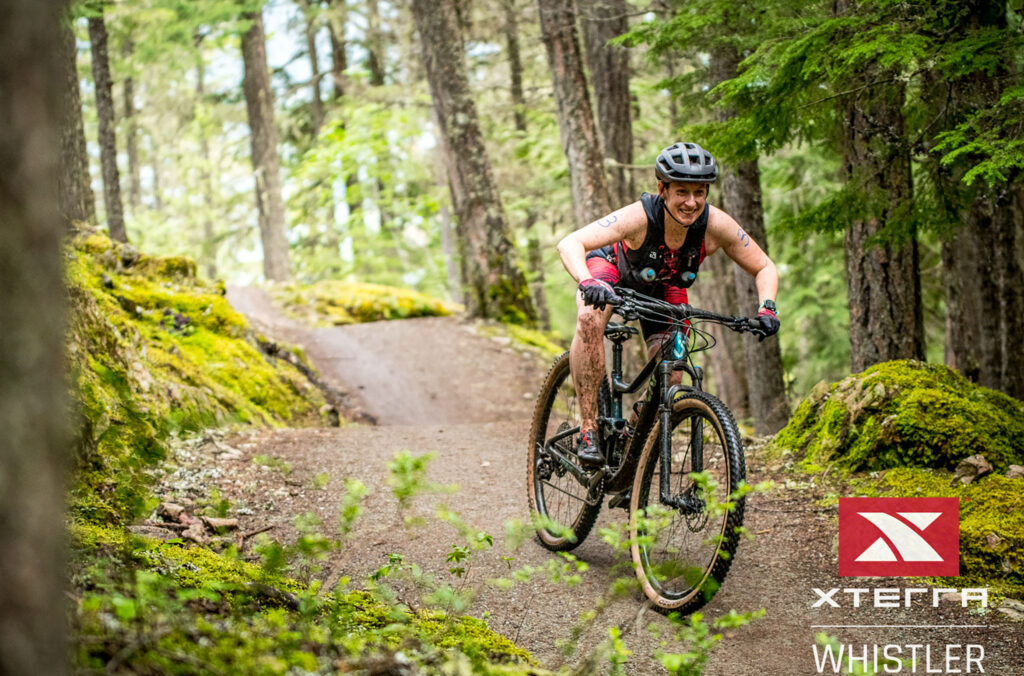
Kristian’s 4 Top Tips for Triathlon Racing
Race Tip #1: Train Intuitively
When it comes to training, I like to keep things simple. Because simple works when you work it. When we complicate training unnecessarily, we tend to end up losing the one thing that will improve both our fitness and performance and that is consistency. And I see athletes lose consistency due to illness and injury, which many times are avoidable.Let’s talk intensity levels. As I said above, I like to keep things simple and effective. In today’s age of technology that is meant to help us, I find a lot of it leads to confusion, distraction and worry. There are many algorithms and tests that give you your training intensities (heart rates and power), but none of these factor in all our day-to-day stressors that impact the numbers we see on a given day.How can that lead to injury and illness? Well, we all want to get better, and we like to peg a certain pace or watts (power) to an effort level. And even if on a particular day that pace or power feels harder, we try to hold that number no matter what. And it’s this that leads to overreaching and limits our ability to recover. We end up training too hard too often, and this is what leads to injuries and illness.I use intuitive intensity guidelines (which you can check out here), which are structured by how you feel on any given day. This teaches you to use intuition and understand your body and its signals. Our inner technology is extremely sophisticated and accurate, we just have to tune back into it.Yes, you can still use heart rate monitors (be careful with the wrist-based ones as they are not very accurate) and power meters, but I recommend cross-referencing them with how you actually feel on a given day. When you relearn to be intuitive, you end up training at the right effort daily, and everything falls into place and you increase your fitness and health, thus improving your performance.
Check out those intuitive intensity guidelines and give them a go. When you believe in and train for those efforts daily, you remove the confusion, the worry, and most importantly, the distraction that modern tech brings. You can get high performance by simply tuning in, without any expensive gadgets.
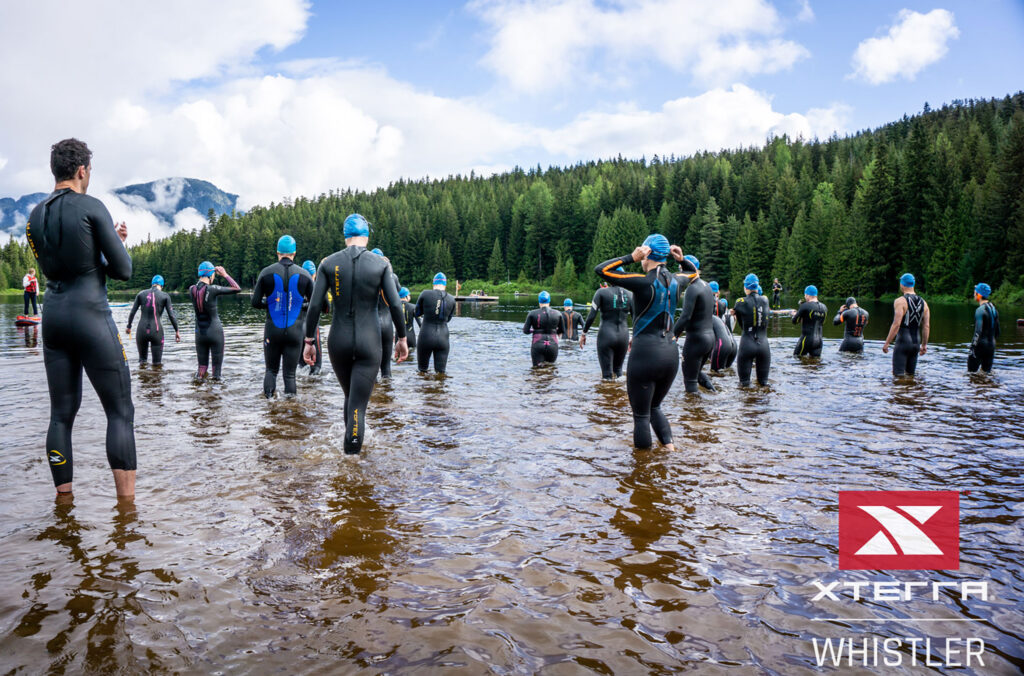
Race Tip #2: Focus on the Swim
Triathlon is not swim + bike + run. It’s actually swimbikerun. What do I mean by that? Well, we have to understand that the key to running well off the bike is maintaining form throughout and if we neglect our swim training, it will come to bite us in the butt on the run. If you get out of the water having used more energy and resources than required, you will be more taxed on the bike and thus even more taxed come the run.
I like to say swim training is run training. And if swimming is not a strong point for you, then it’s even more important to do the swim work so you can get out of the water fresher. Many athletes like to think it doesn’t matter and “I’ll just improve my bike and run and catch up.”
If only it worked that way. That extra fatigue from not having swim fitness or strength will come back at you when you least want it. I’ve also seen strong swimmers neglect their swim training and not get the most from their bike and run.
Keeping form under ever-increasing amounts of duress is how you get from start to finish in your best times and with it all being more fun. It’s the person who slows down the least that goes the fastest.
Whistler Triathlon Swim Tip1 from Kristian Manietta on Vimeo.
Race Tip #3: Run Strong
The key to running well off the bike is twofold. We want to develop strong and robust legs to keep you running strong all the way to the finish and we want to develop an efficient motor pattern with your stride rate (in the 90+ steps per foot per minute) to help break up the viscosity in the legs built up from the bike, which will also see you running strong.
The Whistler X Tri run course is a pretty solid trail run after a fun, yet challenging, bike. Fear is not needed though. Just smart and consistent training. With trail running, I like to say the uphills are always hard. The downhills are easy… until they become impossible.
Yes, I have seen athletes reduced to walking backwards down hills because their quads are blown. And this is totally avoidable. Regardless, if you are going to race the Whistler X Tri this season, or any of the other great local races, the time to start developing the ability to run strong is NOW.
You must train the downs.
What do I mean by that? I mean anytime that you are running downhill, practice and focus intently on running downhill. You must condition your legs to handle the eccentric impacts of downhill running. Let it go… comes to mind. You don’t need to sprint down the hills, but you need to let it go.
It’s not hard, you simply need to release the brakes, and if you do this each and every run, you’ll condition your legs to handle the demands you want to place on them come race day. This also develops under duress. Maintaining good form as the duress increases is how you’ll run your best.
I’ll leave you with a couple of other things that will help you strengthen your legs and have you running strong. The first is a pre-run lunge matrix. Do this before each run to help not only start the warm-up for your legs but to start developing strong legs and good movement patterns. Then finish two to three runs per week with the Mountain Strength exercises. Do this consistently, and I’ll promise you that you’ll have strong and robust legs that will see you doing your best runs off the bike.
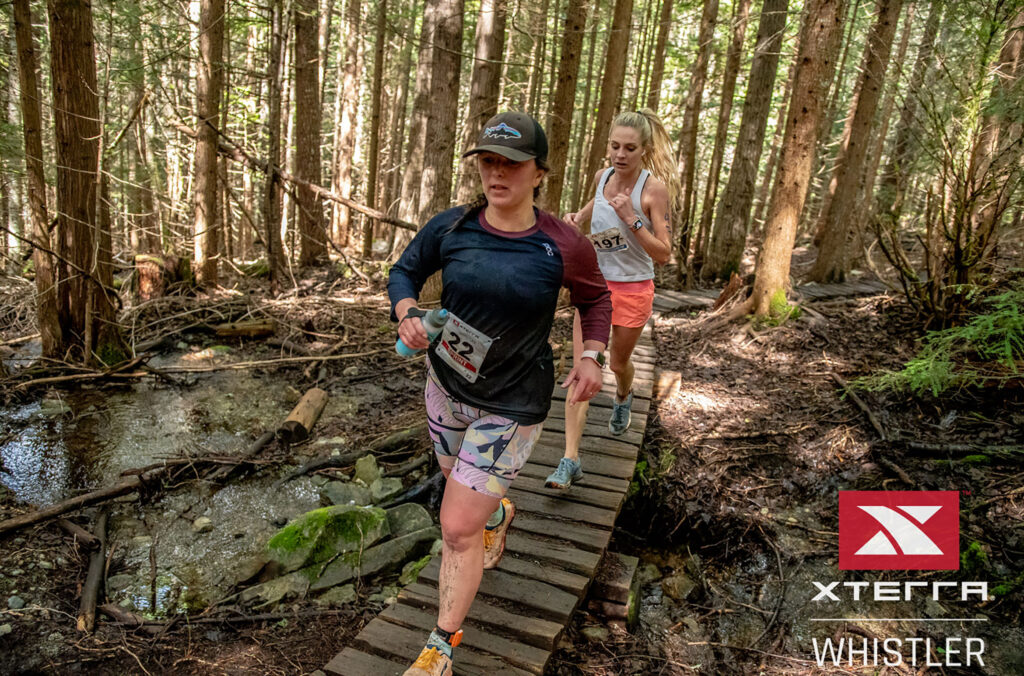
Race Tip #4: Develop Strength and Endurance on the Bike
I recommend doing three to four sessions on your bike per week and riding your mountain bike in Lost Lake or on similar trails that you’ll find in the Whistler X Tri. The majority of your riding should be aerobic, so if you looked at the intuitive intensity levels above, that would be easy and moderate.
There is one specific session I would include per week, done on an indoor trainer, gym bike or on a fairly steep hill. It will recruit as many dormant muscle fibres as possible, which results in getting you stronger, faster. Start with a 15 to 20-minute easy warm-up, then do 10 sets of the following:
One minute at a very low cadence of 40 to 45 rpm at HIGH resistance (go all out) followed by one minute at a VERT EASY resistance. The cadence should be low (40-45 rpm per leg, per minute) because you can’t push any harder because the resistance is so high! We are aiming for rubbery legs.
Follow those ten sets with an easy 15- to 20-minute cool down or a short, 20-minute run off the bike to get you used to running off the bike with dead legs.
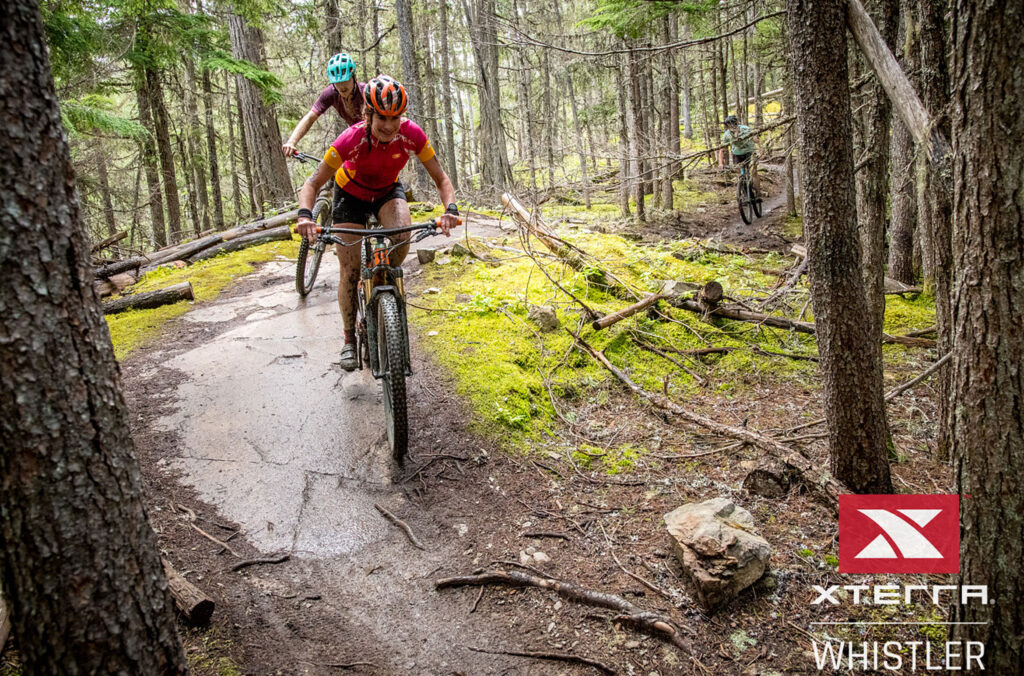
There you have it, four tips from the person running the race. Whistler X Tri is happening on September 13 and 14, 2025. Registration is open, so if you were on the fence, I hope this might have gotten you off it. Say it after me…
“I am capable of doing more than I thought.”
See you at the start line.
Check out some of our other race-based posts for more inspiration.
Spring savings are calling! There’s so much to see and do in spring, you’ll want plenty of time for fun in the sun. Extend your stay and book midweek for increased savings, with 3 nights starting from $135 CAD per night. Coming during Nourish? Book 3+ nights between May 29 and June 30, 2025, to receive a free $100 or $200 Wellness Activity Voucher, valid for use on wellness activities or Nourish Whistler Wellness Series tickets.
For summer, book ahead and save up to 25% on lodging. Plus, you'll receive a free $100 CAD Activity Voucher on stays of 3 or more nights ($200 for 5 nights). You can also win a summer trip to Whistler with the Escape the Ordinary contest!
Insider Tip: Sign up for Whistler Rewards to access additional savings and exclusive perks.
